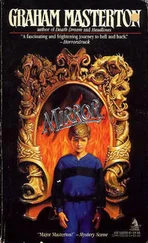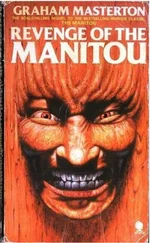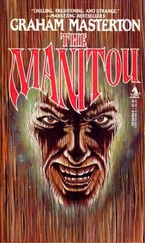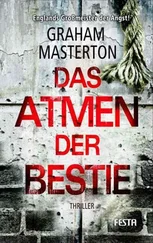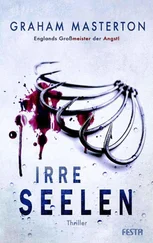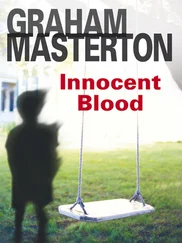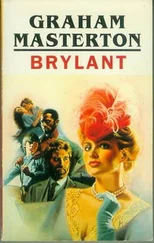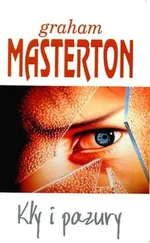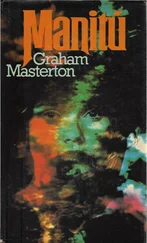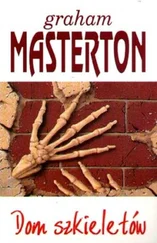“Why? You’ve been through a door yourself. The doors don’t obey any of the laws of space and time. They’re not a place, they’re a sustained state of mind, and for that state of mind to be perceptible, somebody somewhere has to be experiencing it.”
Josh put down his cup. “What about the Hooded Men? Where do they come into it?”
“They were the elite of the Puritan army which defeated the royalists. Over the centuries – in this particular London – they developed into something very much more than religious enforcers. They became what they are today. In your reality, I suppose you would describe them as a kind of Gestapo.”
“So what are you going to do now?”
“Somebody will have to find the person who is keeping the doors open, enter that building and make sure that the doors are closed for ever.”
“Like an assassin, you mean?”
“Exactly.”
“That’s all very well, but your assassin is going to be trapped in this reality for ever, isn’t he? Once the doors are closed, he can never come back.”
“This is our home, Josh. We aren’t going anywhere else.” He looked around at all of the young people sprawled on their chairs, and smiled. “This lot didn’t know anything about parallel worlds when I first arrived. They were all brought up on A Child’s Book of Simple Truth. But they knew that something was wrong with the world they lived in, even if they didn’t understand what. So I told them as much as I had discovered, and here we are. A sort of fledgling resistance movement, I suppose, although I didn’t mean to tell you that, not at the start.”
“And Winnie?” asked Nancy, in a voice as soft as a rubbed-out word.
John Farbelow shrugged. “Winifred Thomas. I never found out what happened to her. I pray that she didn’t meet the same fate as your sister, Josh; but I suspect very much that she might have done.” He was silent for a moment. His mouth puckered and his eyes filled with tears.
“Do you know something?” he said. “I don’t even have a picture of her. Not one. And I’m beginning to forget what she looked like.”
Fifteen
The next morning it was raining hard. They sat in a gloomy side room using a museum packing-case as a table, and shared a breakfast of Force wheat flakes and dry crackers spread with marmalade, and mugs of tea. Josh had never drunk so much tea in his life. It seemed as if every half an hour or so, somebody would put the kettle on. Having a cup of tea was their response to everything: shock, tiredness, elation, boredom, going to bed and waking up again.
John Farbelow came up to them dangling a set of car keys. “I’m going to let you borrow my Austin. Simon will drive you. You can go down to Lavender Hill and talk to your sister’s landlady. Then you can make some inquiries at Wheatstone’s. But be very careful when you go there. Frank Mordant’s as sharp as a tack.”
Simon took the car keys, tossed them up and caught them. “Not like you to trust me with anything, guvnor.”
“I’m trusting you because you owe these people your life. You take very good care of them, d’you hear, otherwise you’ll have me to answer to.”
Simon tried to look nonchalant, but it was obvious that he was frightened of John Farbelow. Josh had the feeling that John Farbelow might have caught Simon in some petty act of theft or betrayal, not so long ago, and that Simon considered himself lucky to have been let off lightly.
“Just remember,” John Farbelow warned him, as they prepared to leave the basement and go out into the rain, but from the look on his face Josh guessed that Simon didn’t need to be reminded of what he was supposed to remember.
They pushed their way out of the British Museum basement and climbed up the wet stone steps to the street. The rain was heavy and gusty, but every now and then it would ease off. The clouds rolled so quickly across the sky that one second the day was dark, corroded green, the next it sparkled as if diamonds had been strewn all over the sidewalks. A rainbow appeared in the sky over Broadcasting House – then another rainbow, a double. The air smelled fresh but the roar of traffic was already deafening, and the sidewalks of Great Russell Street were crowded with pedestrians – businessmen, office girls, porters, delivery boys, policemen and flower-sellers.
“John’s motor is parked round the back here,” said Simon, and led them into a narrow alley at the back of the Museum where six or seven automobiles were parked outside rows of peeling garage doors. He unlocked a large brown Austin and they climbed in. The brown leather seats were cracked with wear and the windows were so filmy that Josh could hardly see out. Simon tried to turn the engine over but it gave him nothing but a weary chug.
“Starting-handle!” he said, and rummaged under the driver’s seat for a long crooked metal rod. He went around to the front of the car, inserted the handle, and gave it two or three vigorous turns. The Austin’s engine coughed and blurted and a cloud of black smoke billowed out of the exhaust pipe. He climbed back in again, and engaged the gears with a deafening crunch.
They crept down St Martin’s Lane in solid traffic. As they waited, a delivery-boy on a bicycle leaned against the Austin’s roof, whistling. Simon wound down the window and said, “You! Nanty that leaning on my motor!”
“Oh, yeah, and ‘oo’s going to make me?”
Simon didn’t say a word, but abruptly opened his door, knocking the boy and his bicycle flat on the road, right in front of an oncoming bus. Fortunately the traffic on the opposite side of the road was going slowly, too. The bus ran over the bicycle’s front wheel and crushed its basket filled with eggs and groceries, but managed to slide to a stop just before it hit the boy’s head. The boy shrilled in terror, his eyes shut, his fists clenched. Simon slammed his door shut and carried on driving.
“What the hell did you do that for?” Nancy demanded. “He could have been killed!”
“Teach him not to lean on other people’s motors,” Simon replied. “You know what it says in A Child’s Book of Simple Truth. The property of others is God’s property, held in trust. Treat it as sacred.’”
“I’ve never had the pleasure of reading A Child’s Book of Simple Truth,” snapped Nancy. “Besides, it seems to me like you’re the last person who should be giving lectures on the sacredness of other people’s property.”
“That’s different. I’m a revolutionary, like John Farbelow.”
“You’re a goddamn opportunist, more like.”
“That’s right. I’m a revolutionary goddam opportunist. What else do you want me to be, in a world like this?”
They reached a wide, open square, paved all over, with fountains and statues. The paving stones were shiny with rainwater and the wind blew the fountains into white mares’ tails. In the center of the square stood a tall stone column with a statue of a man on top of it, wearing a Puritan hat and knee-britches.
“Isn’t this … Trafalgar Square?” said Josh, dubiously. “It kind of looks like it, from all of those 1960s movies I used to watch.”
“Santa Cruz Square,” said Simon, as he steered his way around it, and headed down Whitehall. “That’s Robert Blake, standing on the top, pigeons and all.”
They drove down Whitehall toward Parliament Square. Josh had never been down Whitehall before, so he didn’t realize that the Cenotaph, the British war memorial, was simply not there; and that there were no security gates across the entrance to Downing Street.
The Houses of Parliament looked the same to Josh as they had in “real” London, except that there were noticeably different trees in Parliament Square, and no statue to Winston Churchill. They crossed the Thames again, but Josh didn’t look at it, and Nancy, grasping his hand, knew why.
Читать дальше

